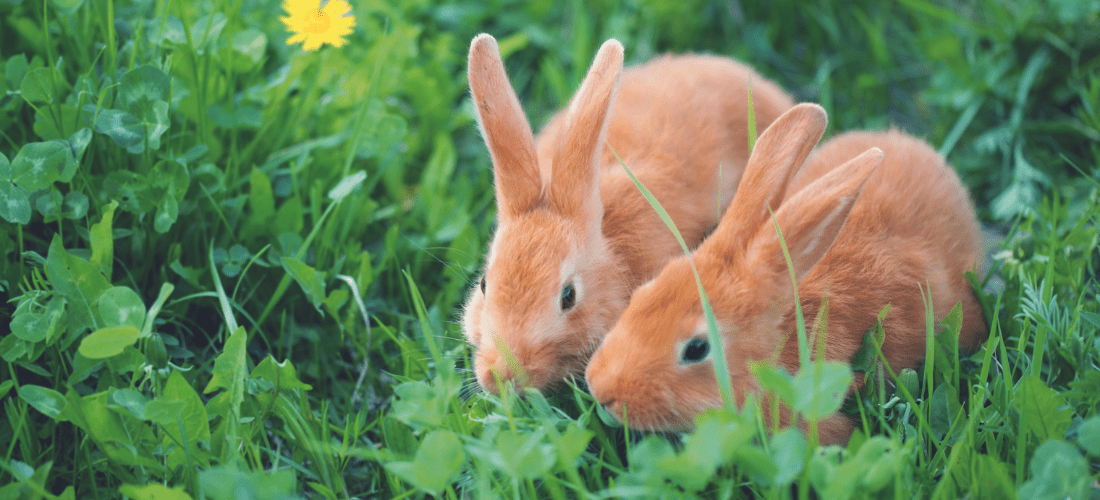Overview
- Our pets are curious creatures and, unfortunately, there are many potential dangers to them in our homes and gardens.
- This is a guide to some of the more common hazards our pets may come across in our homes, but there may be others – always contact your vet for advice if you are unsure whether something could be hazardous or not.
- Visit our Pet Health Hub for further advice on what do to if you think your dog or cat may have eaten something harmful. Contact your vet immediately if your pet is unwell.
Toxic and Hazardous Foods
Lots of food that we consider a tasty treat can be deadly for our pets. Keep these foods well out of paws’ reach:
- Chocolate contains theobromine, a chemical that can be fatal to dogs, cats, and rabbits. The darker the chocolate, the higher the risk. Keep pets away from any foods containing chocolate, such as cakes, sweets, cookies, and cocoa powder.
- Caffeine is a stimulant, and pets are much more sensitive to it than we are. It can affect the heart and blood pressure, and may cause seizures. Caffeine can be found in tea, coffee, energy drinks, chocolate, and even human painkillers, so keep all of these away from curious paws.
- Grapes, raisins, sultanas, and currants contain toxins that are potentially fatal to dogs. Symptoms and toxic dose can vary, so it’s impossible to know whether your dog will be affected or not. It’s always best to call your vet if you suspect your dog has eaten these foods, as in severe cases, toxicity can cause kidney failure.
- Onions, garlic, leeks, and chives contain chemicals called organosulphoxides, which are toxic to dogs and cats. Severe cases of poisoning can lead to anaemia (low red blood cell count).
- Avocados contain the chemical persin, which is highly toxic to birds and rabbits, but safe in small amounts for cats and dogs. However, hazards to dogs and cats include stomach upset due to the high fat content, plus a risk of blockage if the pit is swallowed.
- Other foods with stones or pits like peaches, and corn on the cob, similarly to avocados, can cause a blockage if the pit is swallowed.
- Macadamia nuts are toxic to dogs even in small amounts, but it’s not fully understood why. Symptoms include weakness, tremors, vomiting, and diarrhoea.
- Other nuts aren’t toxic like macadamia nuts are, but their high fat content can cause a stomach upset and pancreatitis (inflammation of the pancreas) if eaten.
- Salt poisoning is rare, because if your pet does eat too much salt, they usually will drink water to combat the effects. However, if your pet eats a large amount of salt very quickly, and doesn’t have access to water, poisoning can be fatal.
- Alcohol is toxic to pets so keep well away from prying paws. Some household products also contain alcohol – see household hazards.
- Xylitol is a sugar substitute – it is extremely harmful to dogs and can be fatal if eaten. It’s found in low-sugar or sugar-free products, including sugar-free chewing gum, sweets, medications, some nut butters, and nicotine replacement chewing gums. It may be listed as ‘birch sugar’ in the ingredients list.
- Mouldy foods can contain dangerous mycotoxins (fungi) which are potentially fatal to dogs. Symptoms may start quickly and can include vomiting, tremors, and seizures. Poisoning can be fatal if not treated quickly. Make sure your dog can’t get into food waste, food bins, and compost bins.
- Blue cheese is made using a fungus, which dogs can be sensitive to. It can cause vomiting, diarrhoea, high temperature, and even seizures.
- Bones whether cooked or raw are unfortunately very hazardous to dogs. Bones can cause injuries to the mouth and teeth, damage to the throat and oesophagus (food pipe), constipation, blockages and they can splinter and cause damage to the stomach and intestines. Cooked bones have a higher risk of splintering.
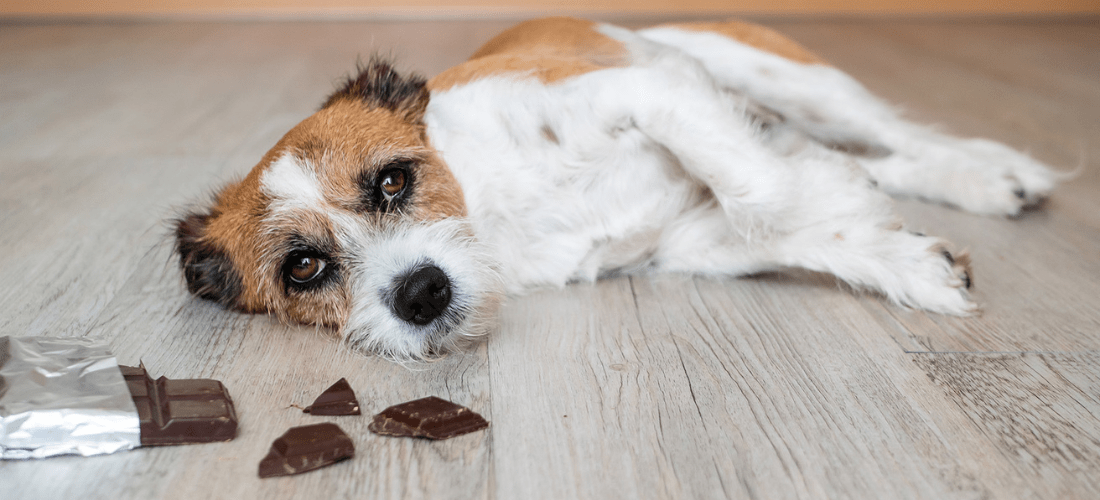
Household hazards
Cleaning products, medicine, and batteries – all common household items that can cause big problems for your pets:
- Vitamin D is an essential vitamin, but excessive amounts can be poisonous to our pets. It is found in rat and mouse poisons - see garden hazards, and human supplements, including ointments. Mild toxicity can cause vomiting, diarrhoea, and lethargy, whilst severe toxicity can cause kidney failure and difficulty breathing.
- Alcohol is toxic to pets and can be found in some household products, including mouthwash, perfume, aftershave, cologne, and glue.
- Human vitamins, medications and supplements may contain doses and ingredients that are toxic to our pets. Only ever give your pet medicines that have been prescribed by your Vet, and store medicines and supplements well out of reach of your pets.
- Batteries contain strong acids. If your pet eats a battery it could cause burns to their mouth, throat, and stomach, as well as causing difficulties breathing and swallowing.
- Dustbins can be very enticing for dogs and cats, with all of their food smells. Mouldy food, discarded foil and skewers, plus other waste items can cause obstructions, damage to the guts or be toxic to our pets. Make sure bins are sealed and can’t easily be knocked over.
- Vapes and E-Cigarettes often contain very high levels of nicotine, which is highly toxic to pets, even in small amounts. Additionally, pets are at risk of cuts from chewing the glass vials, or swallowing the battery.
- Essential oils can be harmful to cats, especially if used neat rather than undiluted. Poisoning can happen through your cat getting essential oils on their skin, swallowing them, or breathing them in. Symptoms include vomiting, difficulty breathing, and seizures.
- Open windows can be very enticing to cats and dogs, and this can be dangerous, particularly if the window is high up. Make sure your pets can’t access room with open windows, or install safety screens so pets can enjoy the fresh air, but can’t get injured by jumping out.
- Cleaning products can be very harmful to our pets due to the chemicals and ingredients they contain. Some products may cause burns to the skin or in their mouth if swallowed, or other symptoms such as vomiting and diarrhoea.
- Pet treatments and medications - always make sure you are using the right treatment and dose for your pet’s species and weight. Keep all medications and treatments stored safely away from your pet. Always read and follow the instructions on treatments – never use a treatment designed for your house or another species on your pet. Never use flea and tick treatments containing permethrin on cats, as it’s highly toxic to them.
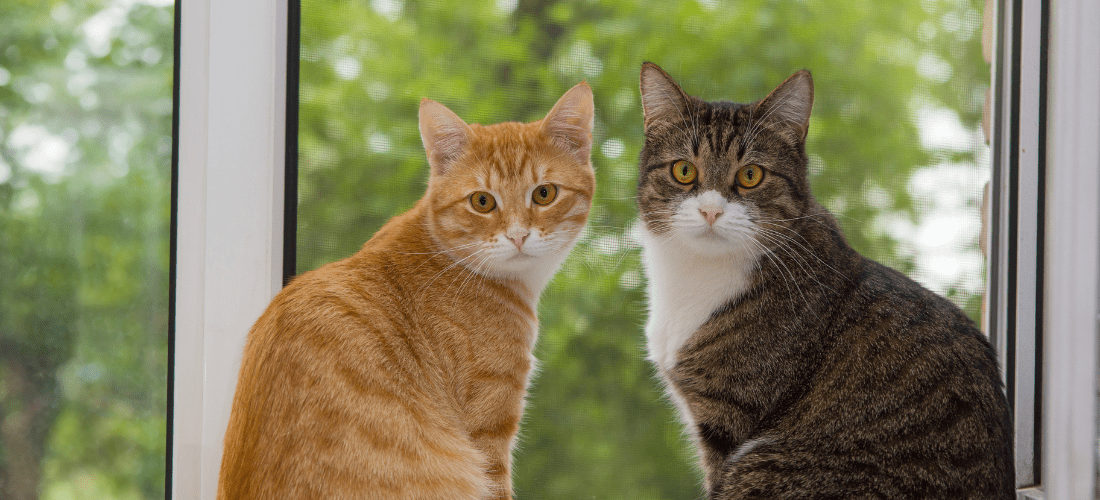
Electrical safety
There are many appliances in our home that can turn into a hazard, especially if your pets are left alone. Follow these tips to make your home safer:
- Household appliances should be used safely, as per the manufacturer instructions. Make sure they are in good working order, with no loose or frayed cables. Consider turning appliances off at the plug when not in use. Find out more on the Electrical Safety First website.
- Portable heaters should never be used if your pet is in the same room and you can’t watch them. Keep your pets away from them at all times as they could knock them over and hurt themselves or cause a fire.
- Wires and cables can be really tempting for pets to chew on – especially puppies, kittens, and rabbits. Use cable covers, or use furniture to block your pet from being able to get to them.
- Tumble dryers and washing machines unfortunately can be seen as a perfect place for a cat-nap, especially if there’s warm laundry in there. Make sure you check your cat isn’t in your appliance before use.
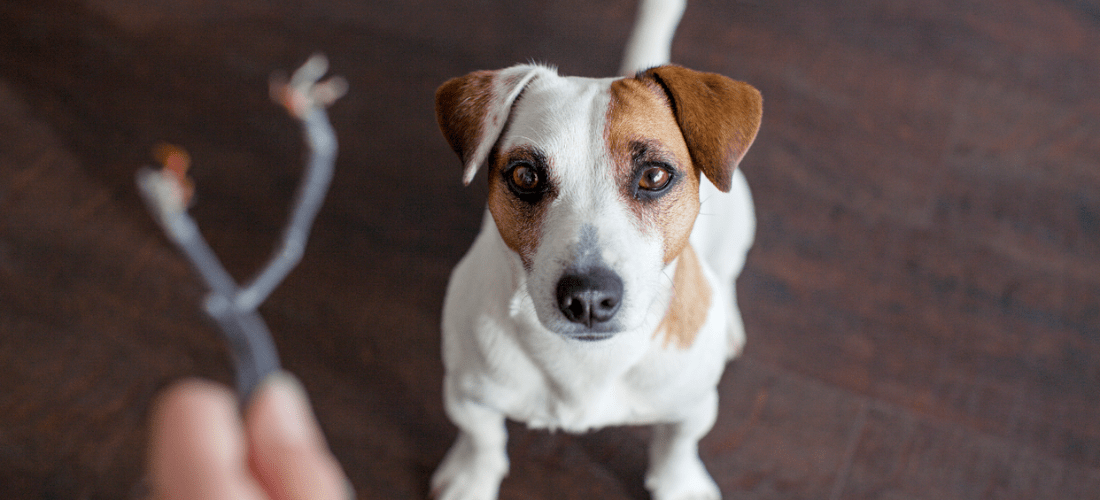
Poisonous plants and flowers
They might look beautiful, but some plants and flowers are best kept well away from pets. You can view a full list of poisonous plants and flowers here.
Many plants will cause mild problems, such as stomach upset. However, some can cause much more serious symptoms in your pet, these include:
- Autumn Crocus
- Azalra/Rhododendron
- Cotoneaster
- Cordyline/Dracaena
- Daffodil
- Dumbcane
- Horse Chestnut
- Oak
- Potato plants
- Yew
- Lillies
- Mushrooms/Fungi
- Giant Hogweed
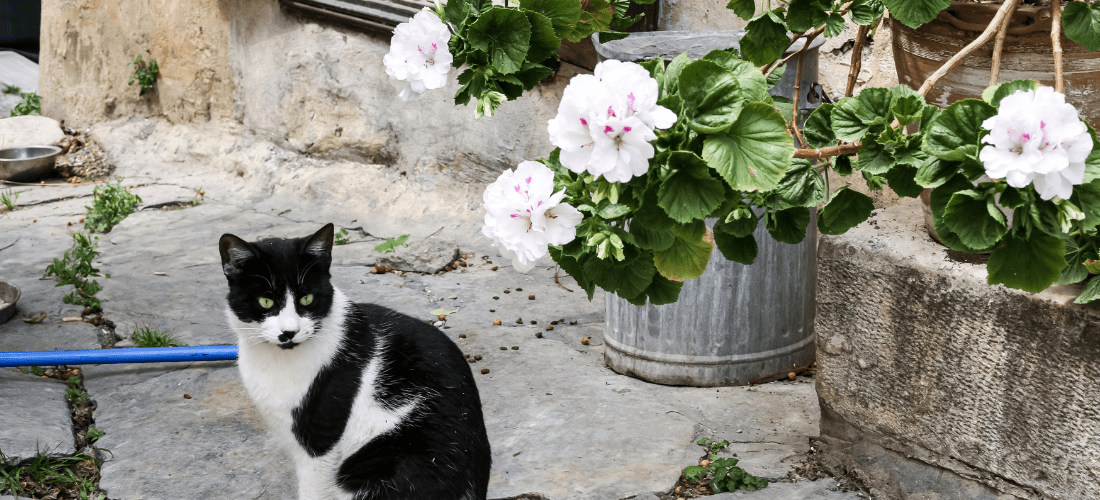
Garden hazards
Our pets often spend a lot of time out and about in the garden, so keep an eye out for these hazards to make sure it’s a safe place for them:
- Weed killers and pest killers can harm pets if they get the liquid on their skin or if accidentally swallowed, including if your pet eats a plant that has been treated. Follow the instructions carefully before using them, and safely store them somewhere your pet can’t access.
- Other garden chemicals such as white spirit and barbeque lighter fluid can cause serious harm if swallowed, licked off fur, absorbed through the skin, or inhaled.
- Antifreeze is very poisonous to pets and is found in screen wash, ‘de-icers’, and brake fluid for the car. Ingesting even the smallest amounts can cause kidney failure and can be fatal. To keep your pet safe, check your car regularly to make sure it isn’t leaking water coolant, and be careful with storing, using, and disposing of products containing antifreeze.
- Rat and mouse poisons are designed to be deadly, so unfortunately they can be dangerous to pets as well. The poisons are mixed with other ingredients to make them tasty to rats and mice, which is why our pets sometimes ingest them. Possible symptoms include bleeding (as many of the poisons prevent clotting), coughing, vomiting, and seizures.
- Slug and snail pellets are toxic to pets, as well as many wildlife, so we highly recommend not using these in your garden. Slug pellets containing metaldehyde can be fatal within hours, but these are now banned from sale in the UK. Check your garden shed and discard any old packets you might have stored away. There are traditional and organic chemical-free pest control options available, some of which may be safer to use.
- Foxes and other predators are a risk to outdoor pets like rabbits, guinea pigs, and chickens if they aren’t in a secure enclosure. Keep small pets safely in their hutches at night, and always supervise them when they’re out of their enclosure.
- Bees, wasps, and hornets can give cats and dogs a nasty sting, which could be dangerous if they’re stung several times at once, or stung in the throat while eating one. Check gardens for nests and contact your local pest control if necessary.
- Toads give off a poison when threatened that can hurt a curious pet’s tongue or skin. If this happens, rinse the affected area with plenty of water and phone the vet immediately. Most pets that come into contact with a toad will show excessive salivation with foaming or frothing at the mouth, and sometimes vomiting.
- Physical objects like broken bottles, sharp stones, and other obvious hazards should be removed from your garden.
- Grass seeds can pierce a pet’s skin, or become lodged in their ears, eyes, or toes. Check your pet regularly and brush out any grass seeds, and try to remove the plants from your garden if possible.
- Lawnmowers and strimmers should only be used when your pet is indoors, and after you have checked your garden for small pets and wildlife.
